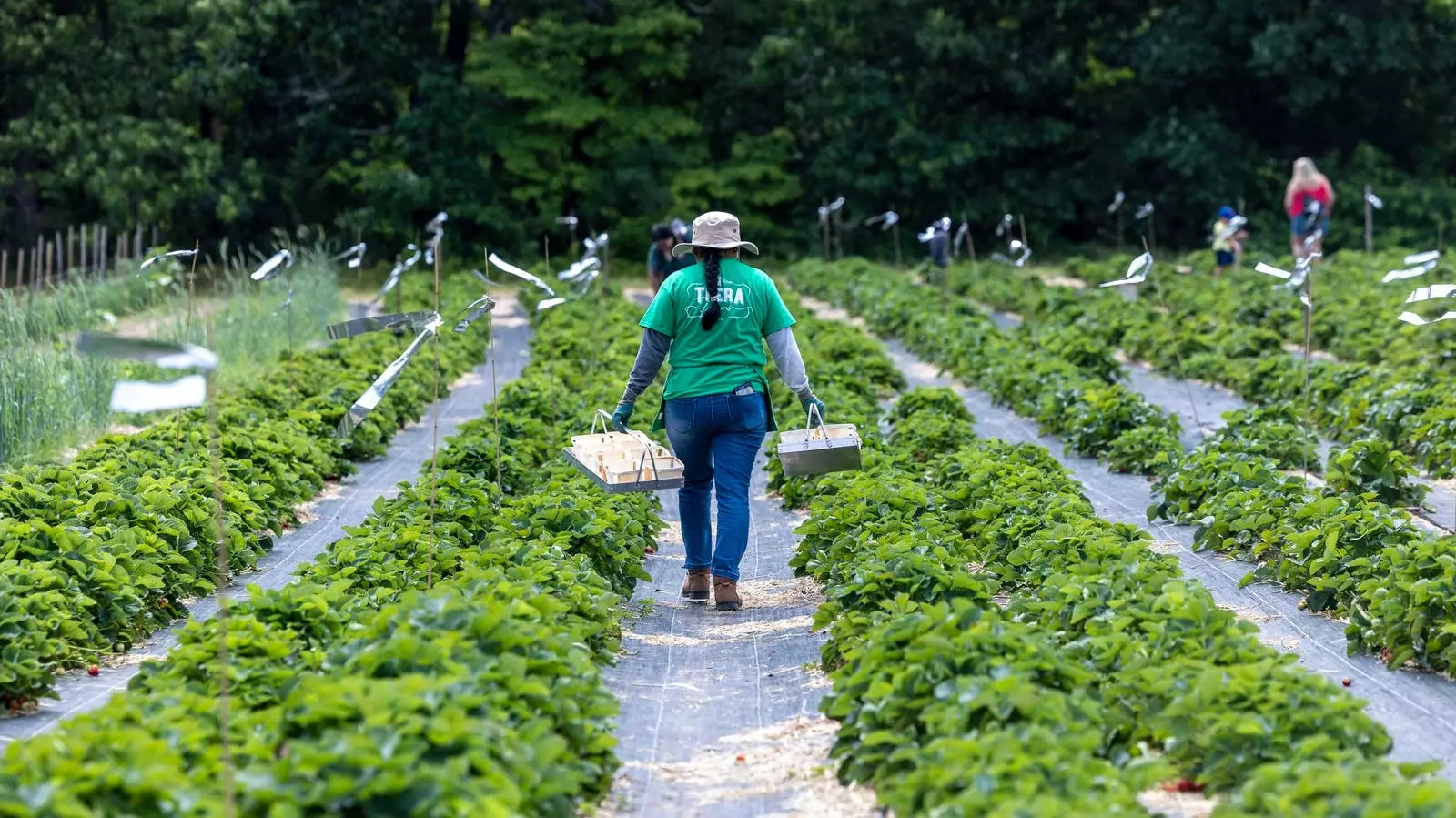The alarming intensification of droughts and erratic weather patterns, compounded by conflicts around the world, have thrust food insecurity into the spotlight. According to Sieglinde Snapp, Director of the Sustainable Agrifood Systems Program for CIMMYT, our soils are deteriorating silently beneath our feet amid these crises. As food systems are increasingly impacted by what Dr. Evan Fraser from the Arrell Food Institute terms “cascading crises,” the consequences grow more severe. The Food and Agriculture Organization (FAO) reports that over 733 million people are grappling with hunger globally, representing one in every eleven individuals. Even more distressingly, nearly 3 billion individuals lack the means to afford a nutritious diet.
With the significance of World Food Day, which falls on October 16, we confront a critical moment to examine the state of our global food systems. It offers an opportunity to accept the grim reality and recognize that substantial work lies ahead to mend these fragile systems. However, there is a silver lining; feasible solutions exist right at our fingertips.
This year’s World Food Day theme, “Right to Foods for a Better Life and a Better Future,” resonates deeply. The principle is simple: every individual deserves access to safe, affordable, and nourishing food. To achieve this aim, we must promote diversity in our food and agriculture practices. Snapp emphasizes that “Diversity is the foundation of nature’s benefits,” asserting that it not only enriches diets but also uplifts lives. Yet, diversity must extend beyond varieties of crops; it is necessary to foster diverse people, ideas, and farming methodologies.
This commitment to diversity is showcased through the recognition of eminent figures like Dr. Cary Fowler and Dr. Geoffrey Hawtin, the 2023 World Food Prize laureates. Their contributions in preserving crop biodiversity and enhancing global food security highlight significant pathways to combat the challenges posed by food insecurity. Dr. Fowler particularly champions “opportunity crops” such as cowpea, millet, and sorghum—crops that bolster soil health and provide economic benefits, especially in regions like sub-Saharan Africa where access to markets and processing facilities is crucial.
A clear and powerful solution to enhance food access comes from empowering women and girls. The role of women in the agricultural sector is fundamental. As noted by Tom Pesek, a Senior Liaison Officer at FAO, they are “the most important actors” in our food systems. Historical and systemic undervaluation of women’s work in agriculture stifles not just gender equity but also the potential to alleviate hunger worldwide. Without equitable access to resources like education, land, and financial support, millions remain trapped in cycles of poverty and food insecurity.
Interestingly, the FAO indicates that empowering women with these resources could lift nearly 100 million individuals from hunger. Furthermore, women are pivotal in cultivating nutritious foods, often being the very farmers who produce the fruits and vegetables crucial for enhancing agrobiodiversity. Fostering the rightful empowerment of women is equally about addressing respect and recognition as it is about equipping them with tangible resources.
To reform our food systems effectively, the voices of producers, irrespective of gender, age, or nationality, must take precedence. An inclusive approach calls for farmers to participate in vital discussions, having a “seat at the table.” Experts like Jeffrey Herrick advocate for strategies that prioritize the well-being of farmers. International conferences like the U.N. Biodiversity Conference and COP29 must not only welcome farmer input but also facilitate collaborations that focus on co-created solutions between farmers, scientists, and entrepreneurs.
Inspiring developments are emerging from various initiatives. For instance, Good Nature Agro in Zambia is actively working with farmers to tackle post-harvest losses, while the McKnight Foundation supports research networks that foster ecological solutions in agriculture worldwide. The Global Alliance of Latinos in Agriculture aims to enhance global farmer and rancher livelihoods, and they are preparing to bring numerous producers to COP30 next year in Belem, Brazil, showcasing a bright future for agricultural dialogue.
The holistic solutions required for a sustainable food system demand scrutiny of financial flows to ensure smallholder farmers—who contribute a significant portion of global food production—receive fair support. Currently, these farmers account for a mere 1.7% of climate finance, a misalignment that must be corrected.
In collaboration with initiatives like the Arrell Food Summit in Toronto, which corresponds with World Food Day, there is hope for systemic transformation. Experts will gather to explore critical areas like diversity, women’s empowerment, and the elevation of farmers in shaping a food system that benefits all.
World Food Day serves as a reminder of the hard conversations that await us. Yet, it is also a beacon of hope, one that suggests a future flourishing with a food system that nourishes every individual with equitable, accessible, affordable, and wholesome meals. The pursuit of this goal is not only necessary but entirely achievable through collective effort and a commitment to systemic change.


Leave a Reply